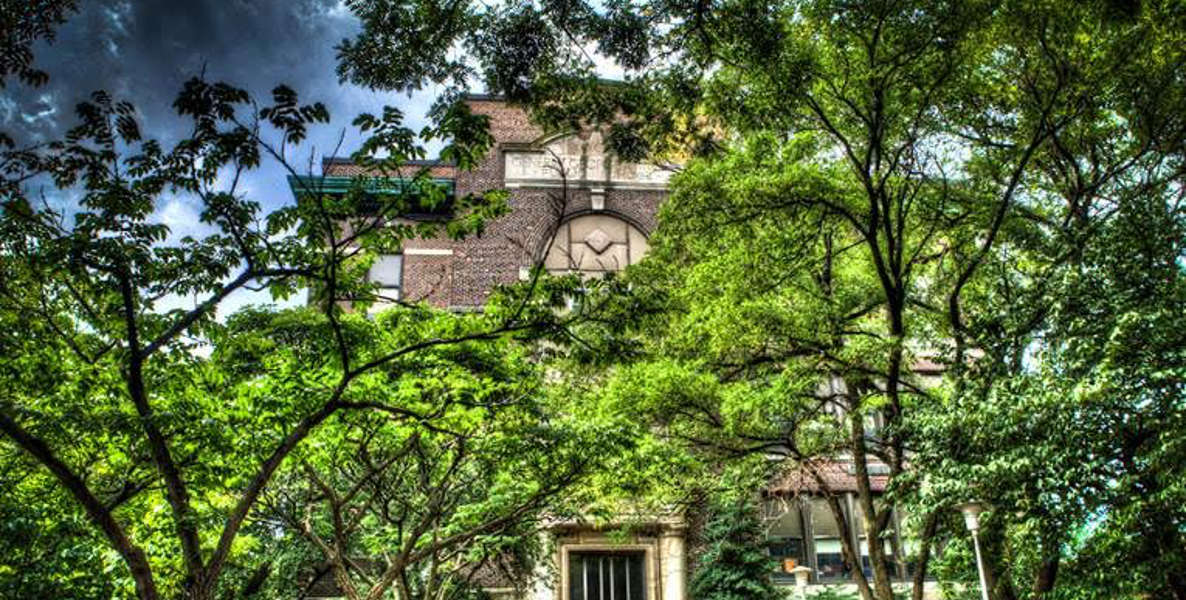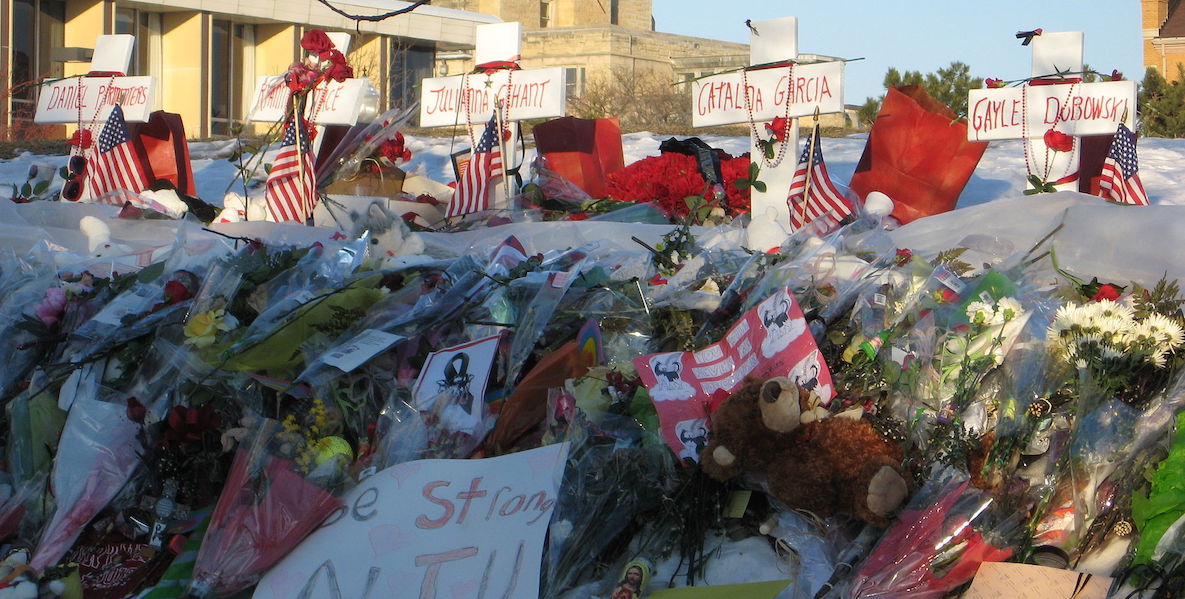A decade ago, when Ascend Public Charter Schools opened its first elementary school in Brooklyn, it ascribed to the prevailing model among educators in urban settings: “No Excuses.” That meant giving teachers and administrators no excuse—not materials, or funding, or student background—for failing to educate their underprivileged pupils. As applied to the adults in the building, it was “the most important reform of the past decade,” says Ascend’s founder and CEO Steven Wilson.

No Excuses also applied to students, who were expected to follow a strict set of rules at every moment of the school day, or risk being disciplined for stepping out of line. For children as young as kindergarten, that was represented by a color-coding system in each classroom that went from green to red, depending on a child’s behavior. This kept the peace, in its way—something schools in urban communities often struggle with—but it had unexpected consequences.

Prefer the audio version of this story? Listen to this article on CitizenCast below:

“All the conversation at the end of the day between parents and kids was, ‘What color did you end up?’ It wasn’t about curiosity,” Wilson says. “Our purpose is curiosity and learning and achievement—not compliance. There’s a fundamental incompatibility between instilling a confidence in ideas and at the same time telling students they have to walk in silent lines and eat their meals without talking.”
So Ascend a few years ago made a deliberate shift, adopting teaching and school culture models that Wilson says are common to suburban districts—where students are trusted to come to school excited and capable of learning—but too often shunned in inner cities. Through a method called Responsive Classroom, Ascend emphasizes critical thinking and interactive learning, where, for example, students teach each other; a relationship-focused culture that includes restorative justice and trauma-based disciplinary approaches; social-emotional learning; and—perhaps most importantly—joy.
“The assumption in affluent settings is that students have good intentions, and we will reinforce good behavior and will help students who are struggling emotionally,” Wilson says. “It comes from a place of belief and support. We’re saying there’s no reason that can’t work here, as well. It takes a lot of patience and work, but we are able to succeed with all students.”
![]()
The numbers seem to bear that out: The percent of 3rd to 8th grade Ascend students proficient in English has steadily risen since 2015 from 25 percent to 58 percent; in math, proficiency has grown from 32 percent to 66 percent. In both subjects, Ascend schools on average have outperformed both public and charters in New York City and state. And they have reversed the racial achievement gap: In 2018, 59 percent of Ascend’s African American students and 52 percent of New York state’s white students were proficient in English, while 65 percent of Ascend’s African American students and 54 percent of New York state’s white students were proficient in math. Meanwhile, suspension rates in Ascend’s six elementary schools declined by 40 percent, keeping students in their classrooms learning; and there was only one suspension in the first year of its high school.
In practice, Ascend’s new philosophy still reflects some aspects of the No Excuses model, particularly the emphasis on clear and familiar routines, from how the students are greeted each morning to how the lunchroom works; this helps build an orderly environment and frees teachers to focus on teaching, not correcting behavior. With Responsive Classroom, each day starts with a community meeting, where students and teachers gather in a circle to share something about their lives and families; this allows everyone to know each other deeply and to pick up early when something may have changed.
Teachers are trained to use language that is supportive, rather than punitive, and consequences for behavioral infractions are logical and therefore seen as fair; if a student has written on desks, for example, the consequence is to clean the desks—not to miss recess. Students are still sent to the dean, and sometimes suspended. But it’s a last resort, not a possible outcome on a behavior chart.
Our purpose is curiosity and learning and achievement—not compliance,” Wilson says. “There’s a fundamental incompatibility between instilling a confidence in ideas and at the same time telling students they have to walk in silent lines and eat their meals without talking.”
Academically, Ascend also changed, away from didactic lectures and top-down learning to emphasize inquiry learning and ownership of ideas—concepts that fit the common core, and also are good skills for college, where students have to think conceptually, and for life outside of school. “This creates a profound understanding of why things happen the way they do of why, for example, math is so beautiful,” Wilson says. “We’re trying to create an excitement and curiosity about learning—that’s a goal in and of itself.”
This is in some ways a throwback to the way many of us—Wilson included—learned, in functional schools and districts. The fact that it is a radical approach to teaching children in less fortunate circumstances is a sign that our educational norms and needs exist on different planes. Urban schools often start way below a base line of safety, order and skills; the initial work, then, is to bring a semblance of control into chaos, to make schools safe spaces for children where learning can even begin to happen. The end goal is a way out—test scores that can lead to college and scholarships and jobs. Creativity, and curiosity, can become sidelined in the process.
![]()
Ascend makes the case that it needn’t be so, and Wilson the argument that what he calls the “tremendous innovation” of No Excuses is too extreme. He compares it to the broken windows theory of crime prevention—if you clamp down on the small infractions, the big ones won’t occur. But it also puts him in mind of another rule-bound institution that is too often the endpoint for black and brown students: Prison. “Having the echo of a criminal justice system inside the school is a bad idea,” Wilson says. “The presumption that unless we control every aspect of their behavior they’re going to be out of control I think reflects a fear of students of color. I don’t think it’s a conscious or intentional attitude, but it’s implicit in it.”
Wilson is a charter school evangelist, who believes in their greater purpose: To experiment with new ways of teaching students, and to pass on what works to other schools, with other students. He doesn’t toss out ideas for the sake of them; but he also doesn’t believe in doing things the same way, for the sake of it. That was true early in his career, as well: The son of academic chemists in Concord, Massachusetts, Wilson dropped out of Harvard after his junior year to start a tech company that helped scientists automate their experiments, back in the early digital days. He returned nine years later, and began studying with acclaimed sociologist Nathan Glazer; his first paper (which became a book) was an ethnographic study of Boston public schools that led him to an early belief in “entrepreneurial schools,” those that have autonomy but are held accountable for their results—in essence, charter schools.
Ascend schools have outperformed both public and charters in New York City and state. And they have reversed the racial achievement gap: In 2018, 59 percent of Ascend’s African American students and 52 percent of New York state’s white students were proficient in English, while 65 percent of Ascend’s African American students and 54 percent of New York state’s white students were proficient in math.
In 1993, Wilson was part of Massachusetts Gov. William Weld’s administration when that state passed its charter school law; Massachusetts now has what is considered to be the best public school system in America. He moved to New York to open the first Ascend school in 2008, with the idea that the charter would create a path to college for all students in the poor Brooklyn neighborhoods where they are based. Ascend now runs 12 schools in the borough, with 5,000 students, and another three set to open next fall. Critical to his mission is proving that Ascend can get better results with the same funding as traditional public schools—about $15,000 per pupil, which Wilson contends is enough—and then proving that it is a model scalable for all students.
The No Excuses model that Wilson has turned from is still a prevalent educational philosophy, but like Ascend, many schools nationwide are shifting away from an all or nothing approach to discipline. In Philadelphia, the largest and most successful charter network, Mastery Charter Schools, found success early with No Excuses. But, like Ascend, it instituted a new policy a few years ago, that was more creative and relationship-based. The results, though, were different here, according to Mastery CEO Scott Gordon.
Rather than setting kids up for success, Gordon says the soft approach to discipline created more confusion among teachers and students about what was expected, and what the consequences of not meeting those expectations would be. That led to more behavior problems and less learning in the classroom. It was, Gordon says, a clear indicator that no straight educational model fits for all students.
![]()
Now, Mastery uses a blended model—including the color-coded disciplinary system—that expects 95 percent of students to be “on task and responsible” at all times, and that includes strong therapeutic supports for the many children in the buildings with real problems. “Our mantra is, ‘Love and High Expectations,’” Gordon says. “The lesson learned for us was that trauma-informed care and a relationship-driven culture are important, and should be the bedrock of a high-performing school, but that it needs to be paired with a clear and consistent disciplinary system.”
Gordon points out that Mastery schools are turnarounds, in which the charter company takes over an existing neighborhood school and its student body. Those schools—which include seven high schools—often come with high levels of violence and chaos. Ascend, which has one high school with about 350 students so far, is a more traditional charter that pulls its students from a District-wide lottery. Both serve primarily underprivileged black and brown children; but at Ascend, the students have parents or guardians who made a choice and took the effort to sign them up for the school. (Ascend does fill all vacant seats with new students up to 9th grade, a practice called “backfilling.”) And, while nearly 15 percent of Ascend students are in special education, that population makes up 30 percent of Mastery. These seemingly slight differences can be stark in a classroom setting.
Wilson’s experiment is not over; like the shift away from No Excuses, Ascend could turn in another direction as it grows. Wilson is clear, though, that the object of his mission comes back again to the type of people we need more of in this world, for their sake and ours: “We want to create people who are curious about the world.”
[Ed note: The Citizen is hosting its inaugural Ideas We Should Steal Festival on November 30th, at Drexel University’s Mandell Theater. Hear Steven Wilson tell his story. See here for tickets and info.]
Photos via Ascend Schools








